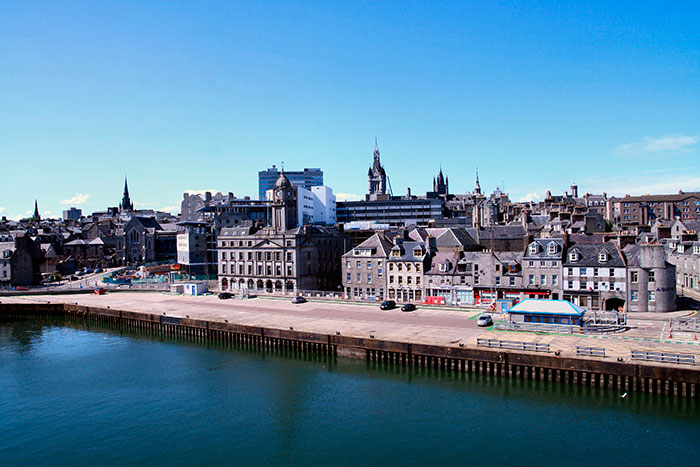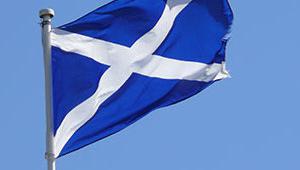
Businesses in Aberdeen had raised particular concerns about the business rates revaluation. Photo: Shutterstock
Provisional valuations from the independent Scottish Assessors Association have sparked mounting protests. These are particularly strong from the tourism and hospitality sectors, where large rises are in prospect, and from businesses around Aberdeen, where the revaluation – the first since 2010 – was conducted before a slump in world oil prices badly affected regional economic activity.
Mackay’s package caps increases at 12.5% for 8,500 mostly small firms in the hospitality industries, and a further 1,000 businesses in the Aberdeen area. There will also be relief for the renewable energy sector, which faces problems from withdrawal of UK government support; and valuation appeals will be free in Scotland unlike in the rest of the UK, which has also faced revaluation protests.
Until now Scottish ministers have argued that, since councils now get to keep all their area’s business rates revenue, it was for them to mitigate rising bills as they saw fit. Previously, revenues were collected centrally and disbursed according to a formula.
But councils say their grant funding from central government is adjusted to take account of presumed business rates income, and that their budgets make no allowance for rates relief. Mackay has now said he will work with councils to tailor relief schemes to local circumstance, and has promised prompt action when a review of the business rates system reports in the summer.
The announcement was welcomed by MSPs, but mocked by the Tories as evidence of a government “asleep at the wheel” and by Labour as a U-turn whose rapidity had left onlookers “positively dizzy.” Mackay said that the measures, taken with earlier exemptions, meant that more than half of business premises would pay no rates at all in the coming year.
Meanwhile Holyrood voted 61 to 55 to approve Scotland’s first self-determined income tax regime in more than 300 years, after a fractious period of negotiation that has underlined the difficulty the Scottish National Party must expect in getting controversial measures through the parliament now that it has lost its overall majority.
Mackay had faced strong pressure from Labour, the Liberal Democrats and the Scottish Greens to hike income tax, especially for higher earners, in order to make a decisive strike against UK austerity policy. The Scottish Tories, by contrast, repeatedly rail against a tax take in Scotland that is higher than for the rest of the UK.
In the event, Mackay opted for a largely symbolic differentiation, freezing thresholds for higher rate payers in contrast with a UK giveaway. Talks between the Cabinet Secretary and all the opposition parties culminated in the Scottish Greens agreeing not to block the Budget package after Mackay found additional cash from previous underspends to offset cutbacks in local authority allocations.
The budget deal took several weeks of tense negotiations, and an independent review is now underway to see what changes might be made to the process to take account of changes in fiscal powers, forecasting needs, and political arithmetic. The review team includes Don Peebles, head of CIPFA Scotland, and former CIPFA president Caroline Gardner, now Scotland’s auditor general.




















